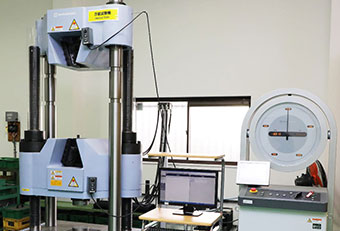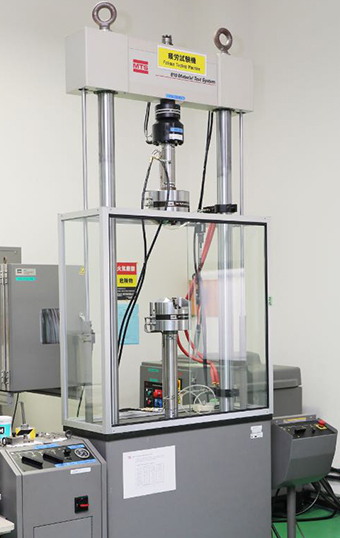Locknut Testing Equipment
NAS vibration and shock testing apparatus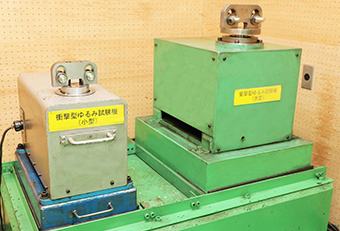
These apparatus are used for vibration and shock testing in accordance with the US National Aerospace Standards. An assembled fastener is placed in a standard frame and subjected to 30,000 vibrations and shocks at 30 Hz (approx. 17 minutes) and an amplitude of approximately 11.4 mm, and the state of looseness is checked. See More
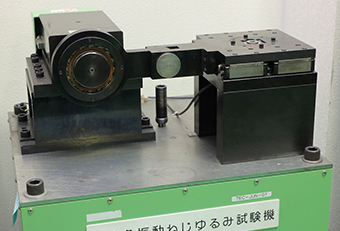
The most common way to test for fastener looseness is to use a Junker-style transverse vibration testing machine, which was devised by Gerhard Junker of Germany. A fixed plate and a vibration plate are fastened with the bolt and nut being tested, and an external force is applied to the vibration test plate transverse bolt for vibration displacement, and the change in preload is measured. See More
Nut tightening testing machine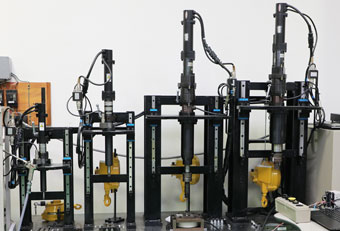
This testing machine automatically tightens the nut and then attaches a torque/angle or load cell to measure the preload. In one test iteration, the data can be acquired for the torque preload line, the rotational angle-torque line and the rotational angle-preload line. See More
This machine performs strength tests (including tensile, compression, bending and shearing) on metals, composite materials, and products/parts of such materials with a maximum load of 1,000 kN (100 tons). The machine is used for guaranteed load, fastener shear and other such tests.
(Shimadzu model UH-F1000kNX)
This test machine repeatedly applies a load at a set value to find the fatigue limit, yielding the fatigue properties of a product/part. The fatigue test machine also investigates whether fatigue failure occurs with a load/stress amplitude below the fatigue limit.
Maximum load: ±100 kN at 21 Mpa, stroke: 100 mm (± 50 mm) See More
 Chinese
Chinese Korean
Korean Japanese
Japanese
